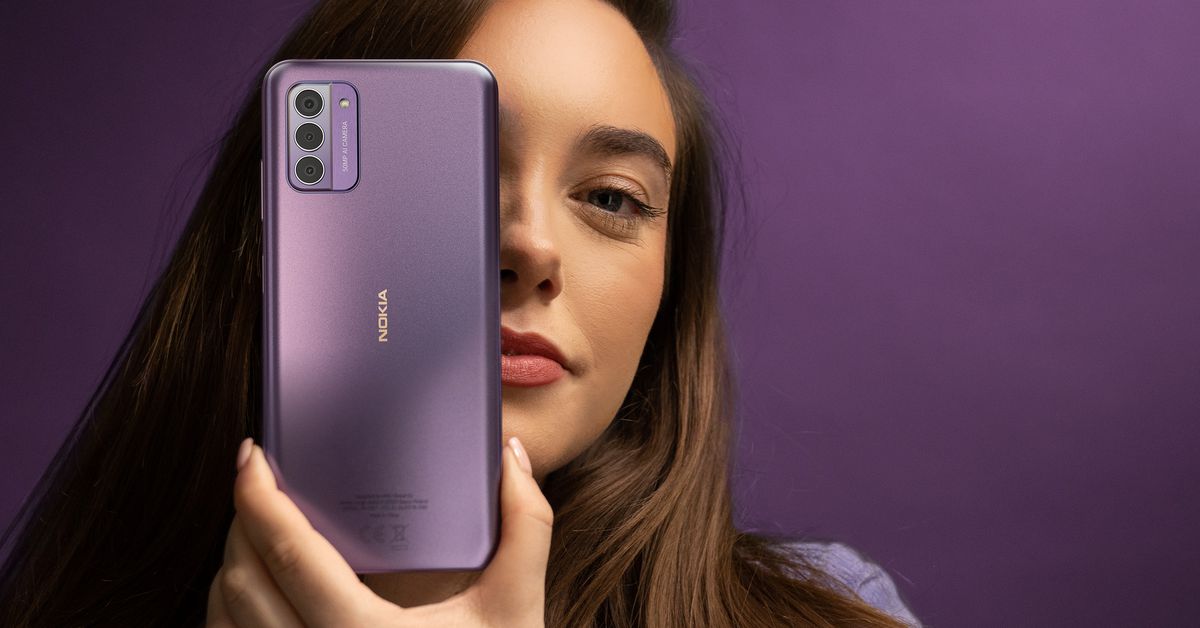HMD’s Nokia G42 is the company’s latest smartphone designed to be easy for users to repair from spare parts and kits sold in partnership with iFixit. The purple version of the device with 6GB of RAM and 128GB of storage is going on sale in the UK from today for £199 (around $255), and will be available in Europe for €249. There’ll also be a model with 4GB of RAM sold in select European markets for around €229, but there’s no sign of either model coming to the US for now.

Like the Nokia G22 announced earlier this year, HMD is focusing on making four key components easy to replace if they break or wear out over time: the phone’s battery, screen, charging port, and back cover. HMD plans to make spare parts available from iFixit for five years, according to the company’s head of product marketing Adam Ferguson.
Although I haven’t had a chance to try to repair the Nokia G42 myself, I found it relatively easy to perform a battery swap on HMD’s last repairable phone, the Nokia G22, while attending Mobile World Congress in Barcelona earlier this year. It’s not quite at the level of the tool-free battery replacement that Fairphone’s phones offer, but it’s designed to be carried out with simpler tools and less steps than most other smartphones including those from Samsung, Google, or Apple.
As its name suggests, the Nokia G42 is designed to offer a step-up in features and performance versus the £149.99 (€179) Nokia G22. There’s support for 5G networks included this time, for example, and it’s powered by a Qualcomm Snapdragon 480 Plus processor rather than the Unisoc T606 found in the Nokia G22. Unfortunately, like the Nokia G22, the new Nokia G42 is also only set to receive two major Android updates (it ships with Android 13) and three years of security updates.
In a briefing, HMD’s Ferguson said the length of software support came down to the price point of the device, and suggested that the length of support offered by chipset manufacturers has also played a part. “There is a cost to every additional OS update and even security update that you build in,” Ferguson says. “So whilst you’re able to build in many, many more years of devices that are £400, £500, or £900 hundred pounds — down at this sort of £199 level, it really becomes a struggle to continue to do that.” He added that feedback from consumers suggests longer software support is “not a dealbreaker.”
The Nokia G42 ships with a rather low IP52 rating, which effectively means it can survive a limited amount of dust and water spray. For reference, the Fairphone 4 comes with a slightly more robust rating of IP54, which means it can survive water splashes from more directions.
Rounding out the specs, the HMD Nokia G42 has a triple rear camera consisting of a 50-megapixel main, a 2-megapixel depth sensor, and a 2-megapixel macro sensor. There’s an 8-megapixel selfie camera housed within a teardrop notch atop the phone’s 6.56-inch 720p 90Hz display, and internally its battery is rated at 5,000mAh with support for fast charging at up to 20W. There’s a microSD card slot for adding up to 1TB of additional storage, and available colors will eventually include purple, grey, and pink.
HMD’s announcement of the Nokia G42 comes shortly after a vote by the European Parliament in which lawmakers strongly endorsed a proposal to mandate user-replaceable batteries for smartphones and other electronic devices sold in the European Union later this decade. But Ferguson says HMD’s plans are being influenced by consumer needs rather than upcoming legislation.
“We’re not doing it just to play into some regulation that may or may not come in some form, because even when it does, that would still be many years away from implementation,” Ferguson said. “This is something our users want now. This is something we as a business want to do now. And so that’s why we are investing so much in the design and working out how to do that.”






